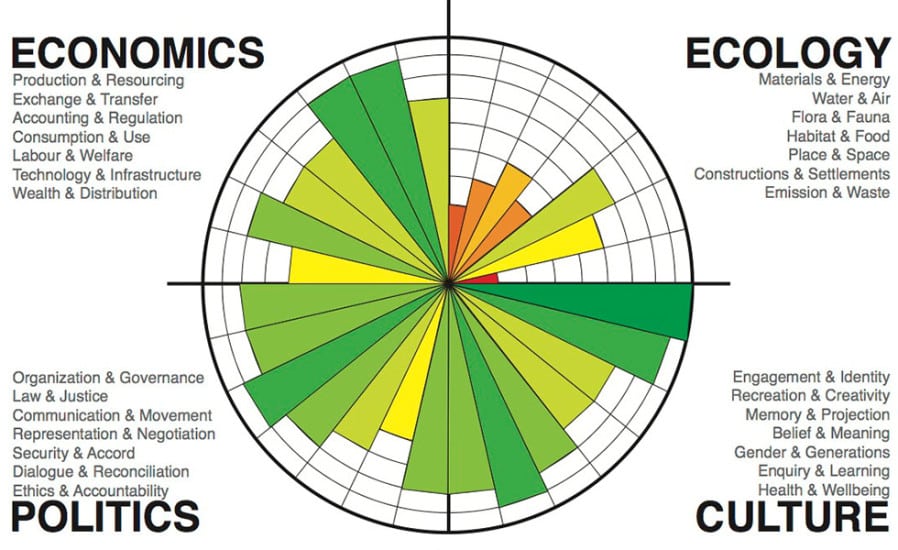
The Ecological Index: A Compass for Sustainable Products
Consumers are increasingly demanding transparency and sustainability from the products they purchase. To address this need, the concept of an Ecological Index (E.I.) is gaining traction. This standardized index would provide a clear and concise evaluation of a product’s environmental impact across its lifecycle, from raw material extraction to disposal.
Imagine a world where every product you encounter carries a clear label revealing its environmental impact. This is the transformative potential of the Ecological Index (E.I.). Here’s how it can reshape consumer behavior and guide the industry towards a more sustainable future, with hemp acting as a leading example:
Empowering Consumers: Currently, many consumers grapple with a lack of transparency about the environmental footprint of products. An E.I. label cuts through the greenwashing and provides a standardized metric for comparison. Imagine choosing between two pairs of jeans: brand A sporting a high E.I. indicating low environmental impact across its lifecycle, and brand B with a low E.I. signifying significant resource depletion and potential toxicity. Armed with E.I. information, consumers can prioritize sustainable options with confidence.
Shifting Market Forces: With consumers making informed choices based on E.I. values, a powerful market force emerges. Companies with low-scoring products face dwindling sales pressure. This incentivizes innovation towards eco-friendly materials, production processes, and product lifecycles. Companies will compete to improve their E.I. ratings, fostering a race to the top in terms of sustainability.
Hemp: A Beacon of Sustainability: The beauty of hemp lies in its perfect alignment with the E.I. framework. Its rapid growth and minimal water requirements translate to high sustainability scores. Durable hemp products require fewer replacements, further minimizing environmental impact. Additionally, hemp cultivation relies on minimal pesticides, reducing the risk of environmental contamination. Finally, hemp’s biodegradability ensures minimal waste accumulation at the end of a product’s life cycle. In a world driven by E.I., hemp stands out as a hero material, showcasing the potential for sustainable, high-performing products.
Transparency is Key: The success of the E.I. system hinges on readily available information. Consumers need easy access to E.I. values displayed prominently on product packaging or available online. Furthermore, robust verification systems are crucial to ensure the integrity of the E.I. scores.
A Collective Effort for a Sustainable Future: The E.I. revolution requires a collaborative effort. Governments can establish clear E.I. guidelines and verification processes. Manufacturers need to embrace transparency and invest in sustainable practices. Consumers, empowered by clear information, can drive change through their purchasing decisions.
Ultimately, the E.I. system, coupled with the champion material of hemp, has the potential to pave the way for a future where sustainability is not just a buzzword, but a core principle guiding consumer choices and driving the industry towards a more responsible and environmentally conscious future.
Conclusion:
The Ecological Index has the potential to revolutionize consumer behavior and guide the industry towards more sustainable practices. Hemp, with its remarkable combination of sustainability, durability, low toxicity, and biodegradability, stands as a prime example of a material perfectly aligned with the principles of an E.I.-driven future. Implementing such a system, coupled with readily available information on E.I. values, can empower consumers to make responsible choices and contribute to a more sustainable planet.
References:
- A new era for industrial hemp: The revival of an ancient crop [Reference 1] by Southerton, S. (2014). Industrial Hemp in Europe: The environmental and economic opportunity. An evidence review for the European Industrial Hemp Association (EIHA).
- Life cycle assessment of hemp textiles [Reference 2] by Tullberg, J., & Paloposki, I. (2014). Journal of Cleaner Production, 68, 50–57.
- Image: https://blogs.rochester.edu/thegreendandelion/wp-content/uploads/2014/04/sustainable-measures1-898×550.jpg
#hemp #ecologicalindex #industry #products #sustainability #durability #toxicity #transparence